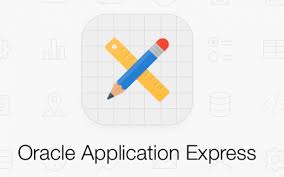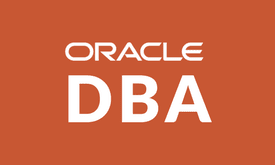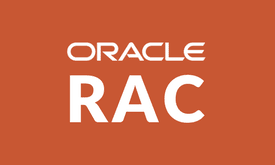Best Oracle APEX training institute in Chennai offers Job Oriented Hands-on Oracle APEX training in Chennai with Oracle SQL, PLSQL, HTML, Javascript by well experienced Oracle APEX professionals having 12 years of Oracle experience.
My training benefits
- My batch sizes are generally very small size 5-7 members OR 1 to 1 also, so students receive direct, hands-on training from us.
- 100% practical training only. It is not a slide show training program / theory class program. At the end of this class, definitely you will refer your colleagues / friends / relatives for my training.
- Conducting regularly online- training for US peoples in all time zones (PST,CST,EST,HST,MST)
- Installation of Softwares in your desktop / laptop will be done.
- Will be provided self evaluation testing software, exam simulator, dumps & books with this training.
- Continuous support is provided for any of your on-site problems. Placement assistance will be provided and you will be recommended to some of IT development firms.
For Corporate Training
- I will be more comfortable, if you could restrict the group not to exceed 20 persons.
- Training hours will be 40 Hrs/paper in view of 20 participants.
- Hardware for the required training should be provided by you, like Hall, Projector, and Furniture.
- I will be bringing my laptop for training purpose, which should be allowed in to your premises.
Prerequisties
About Oracle Trainer
- Dinesh work as an Oracle Consultant & Instructor, He has over 15+ years of Oracle Implementation experience and recognized expert in Oracle SQL and PLSQL technologies, advanced analytics and Oracle data mining.
Mr. Dinesh specializes in Oracle Discoverer, Oracle OLAP and Oracle Data Warehouse Builder.
- He is also been as Senior Instructor of Oracle University and provided 200+ Corporate trainings, trained 25000+ freshers and corporate & fresher professionals.
He is an Oracle Certified Master (OCM). Expertised with RAC, Data Guard, ASM, Oracle Exadata, RMAN, Oracle Performance Tuning, Streams, Security & more.
He is among few of the Oracle Certified Master (OCM's) in the World to achieve below certifications in his area of research.
- Oracle Certified Professional (OCP) 9i
- Oracle Certified Professional (OCP) 10g
- Oracle Certified Professional (OCP) 11g
- Oracle 10g Certified RAC Expert
- Oracle 10g Certified Master (OCM)
- Oracle 11g Exadata Certified Implementation Specialist
Conducting regularly online- training for US peoples in all time zones (PST,CST,EST,HST,MST) My training is 100% Money Back Guarantee (Tuition fee) for Passing Online Examination with cent percent and ready to go live with production system immediately. If my training does not satisfy you at any point of time, even during the training period, you need not pay the tuition fee.
100% practical training only. It is not a slide show training program / theory class program. At the end of this class, definitely you will refer your colleagues / friends / relatives for my training.
Course Curriculum
Curriculum
Oracle APEX Training Course Outline
Best Oracle APEX 4.2 Training Institute in Chennai, 100% Job Oriented Training.
- ORACLE SQL for Oracle APEX
- Oracle APEX
- Oracle APEX
- Unix Shell Scripting
- Business Intelligence
Datawarehousing Concepts
- What is DWH?
- Characteristics of Datawarehouse
- Difference between OLTP and DWH
- Architecture of DWH
- Various BI tools
- Types of DWH
- Types of Dimensional Data Modeling
- Surrogate key
- Types of Dimension
Oracle APEX Architecture
Oracle APEX Power Center Client Tools
- Repository Manager
- Manage Folders
- Designer
- Source Analyzer
- Target Designer
- Mapping Designer
- Workflow Manager
- Task Developer
- Workflow Designer
- Workflow Monitor
- Workflow Log
- Session Log
- Types of View
Transformation Basics
- Classification
- Types of Ports
- Data Types
Types of Transformations
Source Qualifier Transformation
- Creating Simple Pass through Mapping
- Apply Various Filter Conditions
- Specify sorted ports
- Eliminate Duplicate Values
- Creating Custom SQL Query
- Joining two or more tables
Filter Transformation
- Compare with Source Filter
- Types of Tracing Level
- Types of Flatfiles
- File Import Wizard
- Load data from Flat File to Database
- Load data from Database to Flat File
Sorter Transformation
- Types of Ports
- Multiple Sorting
Joiner Transformation
- Joining two heterogenouse sources
- Types of Joins
- Sorted input option
Rank Transformation
- Types of Ports
- Rank Index
- Rank and Dense rank
Sequence Generator
- cycle option
- Usage of Reset
Expression Transformation
- Use of Expression
- Usage of Variable Port
- IIF and Decode functions
Aggregator Transformation
- Oracle APEX aggregate functions
- Sorted input option
Router Transformation
- Types of Groups
- Group Conditions
Union Transformation
- Types of Groups
Normalizer Transformation
- Types of Normalizer
- Transpose Columns to Rows
- Default Output Ports
Lookup Transformation
- Connected Vs Unconnected Lookups
- Unconnected Procedure
- Lookup Caches
Stored Procedure Transformation
- Create a Sample Procedure
- DBA Script
Update Strategy Transformation
- Database opertations
- Data Driven
Transaction control Transformation
- Dynamic File Generation
Slowly Growing Dimension
Slowly changing Dimension
- Type 1
- Type 2
- Type 3
Transformation Developer
- Create a Reusable Transformation
- Promoting Transformations
Mapplet Designer
- Create a reusable Mappings
Mapping Parameters
- Design Parameter File
Mapping Variables
- Set variables function
Session variables
- Setting Connections
- Workflow variables
File Repository Concepts
- Indirect loading
Target Load Plan
- Types of scheduling
- Time-based schedule
- Event -based schedule
Mapping Migration Process
- Copy from Folder
- Import and Export
Analytic SQL for Oracle APEX Training in Chennai
- Course Objectives, Course Agenda and Class Account Information
- Describe the Schemas and Appendices used in the Lesson
- Overview of SQL*Plus Environment
- Overview of SQL Developer
- Overview of Analytic SQL
- Oracle Database SQL and Data Warehousing Documentation
Grouping and Aggregating Data Using SQL
- Generating Reports by Grouping Related Data
- Review of Group Functions
- Reviewing GROUP BY and HAVING Clause
- Using the ROLLUP and CUBE Operators
- Using the GROUPING Function
- Working with GROUPING SET Operators and Composite Columns
- Using Concatenated Groupings with Example
Hierarchical Retrieval
- Using Hierarchical Queries
- Sample Data from the EMPLOYEES Table
- Natural Tree Structure
- Hierarchical Queries: Syntax
- Walking the Tree: Specifying the Starting Point
- Walking the Tree: Specifying the Direction of the Query
- Using the WITH Clause
- Hierarchical Query Example: Using the CONNECT BY Clause
Working with Regular Expressions
- Introducing Regular Expressions
- Using the Regular Expressions Functions and Conditions in SQL and PL/SQL
- Introducing Metacharacters
- Using Metacharacters with Regular Expressions
- Regular Expressions Functions and Conditions: Syntax
- Performing a Basic Search Using the REGEXP_LIKE Condition
- Finding Patterns Using the REGEXP_INSTR Function
- Extracting Substrings Using the REGEXP_SUBSTR Function
Analyzing and Reporting Data Using SQL
- Overview of SQL for Analysis and Reporting Functions
- Using Analytic Functions
- Using the Ranking Functions
- Using Reporting Functions
Performing Pivoting and Unpivoting Operations
- Performing Pivoting Operations
- Using the PIVOT and UNPIVOT Clauses
- Pivoting on the QUARTER Column: Conceptual Example
- Performing Unpivoting Operations
- Using the UNPIVOT Clause Columns in an UNPIVOT Operation
- Creating a New Pivot Table: Example
Pattern Matching using SQL
- Row Pattern Navigation Operations
- Handling Empty Matches or Unmatched Rows
- Excluding Portions of the Pattern from the Output
- Expressing All Permutations
- Rules and Restrictions in Pattern Matching
- Examples of Pattern Matching
Modeling Data Using SQL
- Using the MODEL clause
- Demonstrating Cell and Range References
- Using the CV Function
- Using FOR Construct with IN List Operator, incremental values and Subqueries
- Using Analytic Functions in the SQL MODEL Clause
- Distinguishing Missing Cells from NULLs
- Using the UPDATE, UPSERT and UPSERT ALL Options
UNIX Shell Scripting for Oracle APEX Training
Unix Command Review
- Basic Unix commands
- General commands
- File and directory handling commands
- Filename generation characters
- I/O Redirection features
- Other commands
Getting Started
- What is a shell script?
- Development guidelines
- Creating and editing shell scripts
- Naming and storing shell scripts
- Executing shell scripts
- Exercise: Write a simple shell script
Using Variables
- Environment variables
- Local variables
- Assigning values to variables
- Assessing variable values
- Using quotes
- Delimiting variable names
- Echo control sequences
- Exercise: Add variables to a script
Integer Arithmetic
- Using the expr command
- Using the (( )) notation
- Exercise: Add integer arithmetic to a shell script
Handling Run Time Data
- The read command
- Command line arguments
- Exercise: Writing a generic shell script
- Exercise: Writing an interactive shell script
Condition Execution
- The if statement
- The test command
- Other test notations
- Default and substitute variables
- Exit status codes
- Exercise: Adding validation to previous scripts
Loop Constructs
- The while loop
- The until loop
- The for loop
- The while true and until false loops
- Loop control commands
- Exercise: Enhancing the previously written scripts
- Exercise: Writing a guess-the-number game
Multi-Branch Decisions
- The case statement
- Menu driven applications
- Exercise: Developing and writing a menu system
Functions
- What is a function?
- Syntax
- Examples
- Exercise: Add a function to a script
Interrupt Handling
- Interrupt signals
- Trapping interrupts
- Exercise: Adding traps to the menu script
Additional Features and Facilities
- The exec commands
- The includes notation
- More about loops
- Arrays
- Here Documents
- Exercise: Create a here script





